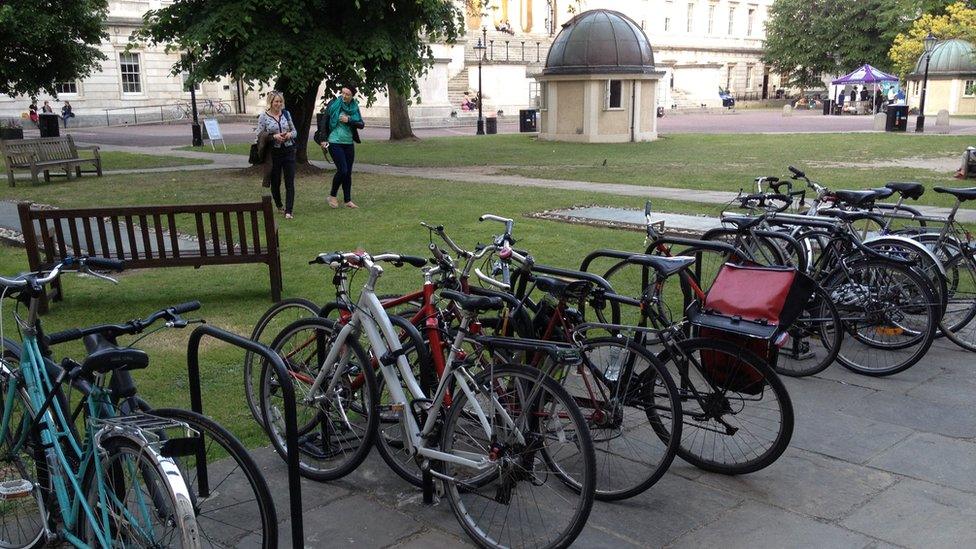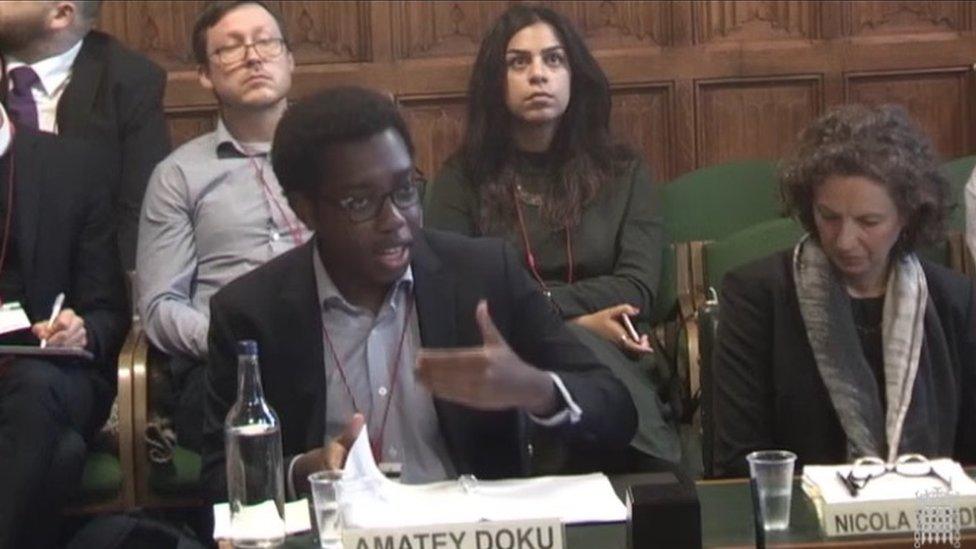Curbing university bosses' pay 'won't solve funding crisis'
- Published

Issues like student poverty and debt will not be solved only by curbing vice-chancellors' pay, says the NUS
Sky-high pay among university chiefs is "hard to stomach" but tackling it will not alone solve the higher education funding crisis, a National Union of Students official has told MPs.
"There are wider issues for students," Amatey Doku, NUS vice president, told the Education Select Committee.
But Nicola Dandridge, who runs the new higher education watchdog, said vice-chancellors' pay must be addressed.
"Some salaries are out of kilter," said Ms Dandridge.
The level of some vice-chancellors' pay is the subject of "legitimate public concern" Ms Dandridge, chief executive of the Office for Students, told the committee's inquiry into value for money in higher education.
Last month the vice-chancellor of Bath University, Dame Prof Glynis Breakwell, agreed to step down amid a row over her £468,000 pay packet.
Other universities embroiled in similar rows include Southampton and Bath Spa.
Universities Minister Jo Johnson has pledged to bring excessive pay for university bosses under control.
Nicola Dandridge told the committee that new rules meant "that anyone being paid more than £150,000 a year be required to justify it".
The practice in some universities, where vice-chancellors sit on remuneration committees, is in particular need of attention, she said.
She argued that pay should be linked "in some transparent way" to performance.
However, she added that it was important to remember that universities are autonomous and some are "huge billion-pound operations".
"It is really critical they sort this out themselves."

Mr Doku and Ms Dandridge were giving evidence to the Education Select Committee
Mr Doku said that it was important to ensure that universities spend their money "in the most open and transparent way".
But he said: "There has been a trend when things start going wrong in higher education, the Department for Education and some ministers start attacking universities."
He said it was "no coincidence" that the issue of vice-chancellors' pay had come up now.
He called for an overhaul of the entire higher education funding system in England which, he said, was leaving too many students facing poverty and debt.
"We are collecting evidence of the hardships and challenges that many students face, which have a knock-on effect on their whole university experience."
Student maintenance grants for lower income students which were scrapped last year, should be reintroduced "as a key priority", he argued.
"We need a complete, comprehensive funding review... and to have students at the heart of the conversation."
The full report is expected sometime in late spring 2018.